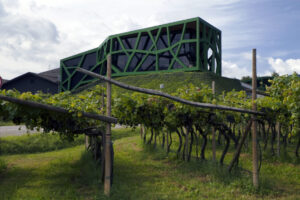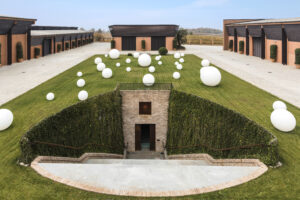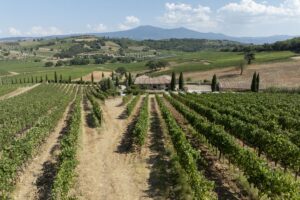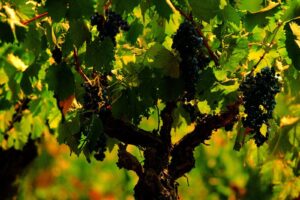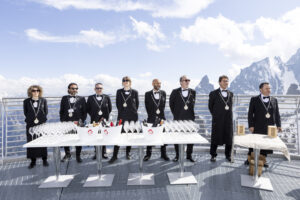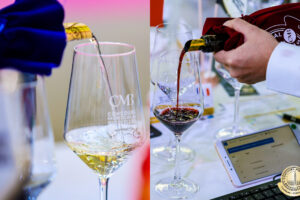The future of vineyards depends on innovative and sustainable water use-a challenge that also involves the financial system, which is committed to finding solutions to cope with climate change. This was discussed at the “Vinitaly 2023” conference, “Vineyard water management: challenges and opportunities”, promoted by Confagricoltura and Crédit Agricole Italia. Speakers at the debate - of great relevance and topicality, given the natural disasters, including major ones, that have been afflicting the wine sector in recent years - included Rosario Di Lorenzo, professor of Viticulture at the Saaf-Scienze Agrarie, Alimentari e Forestali Department of the University of Palermo and president of the Accademia Italiana Vite Vino, Eugenio Sartori, general manager of Rauscedo Cooperative Nurseries, and Vittorio Ratto, deputy general manager of Crédit Agricole Italia.
“In light of the current climatic emergency”, explained Professor Rosario Di Lorenzo, “a proper approach to water management in the vineyard is now more crucial than ever. Unlike a few years ago, vineyard irrigation has become a widespread cultivation practice, but it must be carried out sustainably and competently. In particular, it can no longer be considered an emergency procedure-as required by many production specifications that still allow so-called “relief irrigation”-but “deficit” irrigation strategies must be adopted, which, in addition to optimizing water-use efficiency, allow for better production results. During the annual plant cycle, in fact, there are times-particularly during ripening, from veraison to harvest-when situations of water stress can be tolerated to the advantage of the final quality of the grapes. Of course, the water deficit must be controlled through objective data, which is not always easy to monitor because of the uniqueness of each individual plant and each individual terroir, but research is actively engaged on this front, and undoubtedly it is very important to increase the awareness of operators on the subject”.
Eugenio Sartori adds, “the use of rootstocks has undergone an important transformation in recent years, in relation to the evolution of the national ampelographic platform and climate change. In this context, the four “M” rootstocks designed as a world exclusive by Rauscedo Cooperative Nurseries, thanks to a long research activity carried out by the University of Milan with the support of Winegraft - the start-up founded in 2014 by some of the leading Italian wine cellars to support the development of research on the new generation of rootstocks - have proved to be very efficient in the use of the water resource. Particularly in the summer of 2022, which was characterized by a very hot and droughty course in practically all Italian wine-growing areas, the M4 rootstock showed superior resilience to the 140Ruggeri, 1103Paulsen and 110Ricther, which are known to be very drought-resistant. The M2 rootstock also gave decidedly positive results from an agronomic and enological point of view”.
Meanwhile, Crédit Agricole-a bank with a strong focus on agriculture (the wine sector absorbs as much as 25% of its financing in agribusiness)-confirms its action to raise awareness of climate change and its commitment to support wine companies in managing environmental emergencies, particularly water emergencies. Credit solutions are being studied that can help companies, encouraging them to embark on a path toward energy and sustainable transition. “Viticulture is a very relevant sector for us”, said Vittorio Ratto, deputy general manager of Crédit Agricole Italia, “it is a supply chain with more than 6,000 customers that alone absorbs almost a billion of our loans. On revolving pledge, the instrument that allows companies to advance financing equal to the value of the wines aged in the cellar, we are by far the leading bank in the Italian market. In addition, we have just launched the first range of financing specifically designed for agriculture, aimed at facilitating the energy transition of companies that comply with sustainability parameters. With these tools, and with the strength of the Crédit Agricole brand behind us, in the coming years we intend to strengthen our role as a reference for the wine sector and accompany its technological and green transformation. Innovation, in fact, is the high road to absorbing the impacts of climate change and optimizing the management of water resources”.
Copyright © 2000/2025
Contatti: info@winenews.it
Seguici anche su Twitter: @WineNewsIt
Seguici anche su Facebook: @winenewsit
Questo articolo è tratto dall'archivio di WineNews - Tutti i diritti riservati - Copyright © 2000/2025











